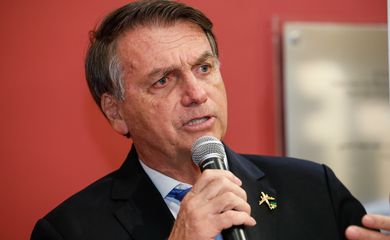Economy Minister says country will slow down in 2022

Economy Minister Paulo Guedes said today (15) that the country should experience an economic slowdown in 2022. According to him, the drop will be due to the effect of higher interest rates and the fight against inflation. However, according to the minister, the slowdown may be counterbalanced by the increase in investments already contracted, arising from privatizations, and by Auxílio Brasil, which should increase consumption.

“Next year, due to the effect of higher interest rates and the fight against inflation, which is an important vector, there will be an economic slowdown. It's a fact, yes, there must be. But there are other vectors at work: on the one hand, Auxílio Brasil, sustaining consumption and, on the other, BRL 700 billion in contracts for the next 10 years, which are investments", he said, after participating in the Moderniza Brasil – Ambiente de Business, organized by the federal government and held at the Federation of Industries of the State of São Paulo (Fiesp) headquarters.
wage increase
The minister also said that he does not see an increase in civil servants' salaries in 2022 as opportune. According to him, if it occurs, the increase in the remuneration of civil servants has to be "a very specific business, very localized and very limited in numbers" .
“This is not an opportune time, the economy has just picked up. Come now and you transform precisely these resources that we managed to save, you now take advantage of and generalize salary increases throughout Brazil, civil servants in general, state, municipal and federal. You're going to weaken everyone's finances again,” he said.
The Economy Minister highlighted, however, that categories such as federal police, federal highway police, and civil police may receive a “restructuring” in salaries. "[These categories] have the feeling that the governments abandoned them in the past, they left there a very big gap."
IMF
Paulo Guedes also announced that the Brazilian government officially informed the International Monetary Fund (IMF) that it no longer needs the institution's presence in Brazil. According to the minister, the IMF installed itself in the country many years ago and forgot to leave.
“We are officially saying that we don't need to have them here anymore, they haven't needed to be here for many years now, they stayed because they like feijoada, football game, good conversation and, every now and then, criticize a little and make predictions wrong”.
Infrastructure
Participating in the same event, the minister of Infrastructure, Tarcísio Gomes de Freitas, said he is excited about the changes in the legal framework for railways and cabotage, which should come into effect in the coming months. “This week, we celebrate the approval of two milestones. We approved on Monday [13] the milestone of the railroads in the Chamber, going to the president's approval. And today the cabotage milestone was approved. We are also going to take advantage of this coastal extension and the potential that we have. It is a milestone that makes charter rules more flexible, which will increase the supply of vessels on the Brazilian coast, and this increase in supply will also bring about a reduction in costs,” he said.
Another action mentioned by the minister, also in the sense of transport development, is the new possibility of building private railways. “Railway was exclusive to the state. We said 'we are going to change this, we are going to open up the market, we are going to work with authorizations, we are going to have a private railway in Brazil'. The authorization practically has the contours of the private railway, the investor takes the engineering risk and has a much more flexible regulatory regime.”
The minister said that when the measure was taken, the government thought it would receive “six, seven requests for authorization”. “Yesterday we were celebrating the 48th request for authorization, this represents the construction of 12,900 new kilometers [km] of railways,” said Gomes.
Regarding aviation, the minister stated that there will also be a transformation. “The first is heavy investment in infrastructure through the transfer of assets to the private sector. It is the government that has held the most auctions for airports, 34. We are going to hold another 16 next year, that is, we are going to end the government with 50 airport auctions carried out.”
In relation to highways, the minister said that the most important thing is the concession program. “We have already built 5,000 km of new concessions, we are going to do another 8,000 soon, and we should close next year with another 12,000 km. In a short time, Brazil will have half of the federal network granted.”
Text translated using artificial intelligence.




